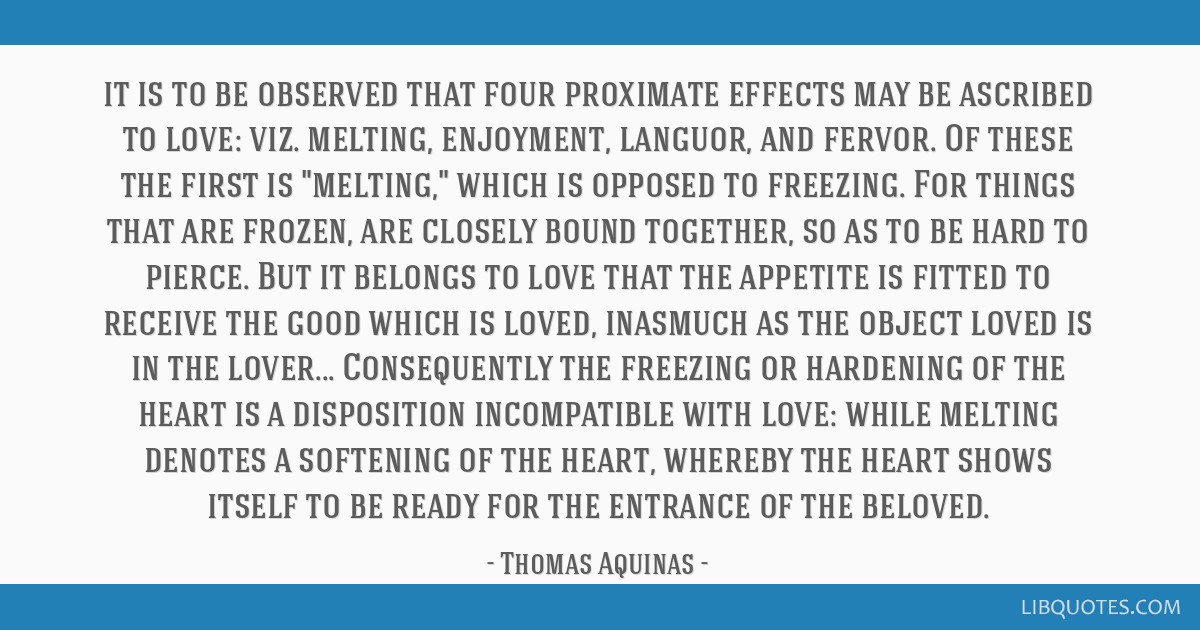it is to be observed that four proximate effects may be ascribed to love: viz. melting, enjoyment, languor, and fervor. Of these the first is "melting," which is opposed to freezing. For things that are frozen, are closely bound together, so as to be hard to pierce. But it belongs to love that the appetite is fitted to receive the good which is loved, inasmuch as the object loved is in the lover... Consequently the freezing or hardening of the heart is a disposition incompatible with love: while melting denotes a softening of the heart, whereby the heart shows itself to be ready for the entrance of the beloved.
I-II, q. 28, art. 5 - Summa Theologica (1265–1274)























